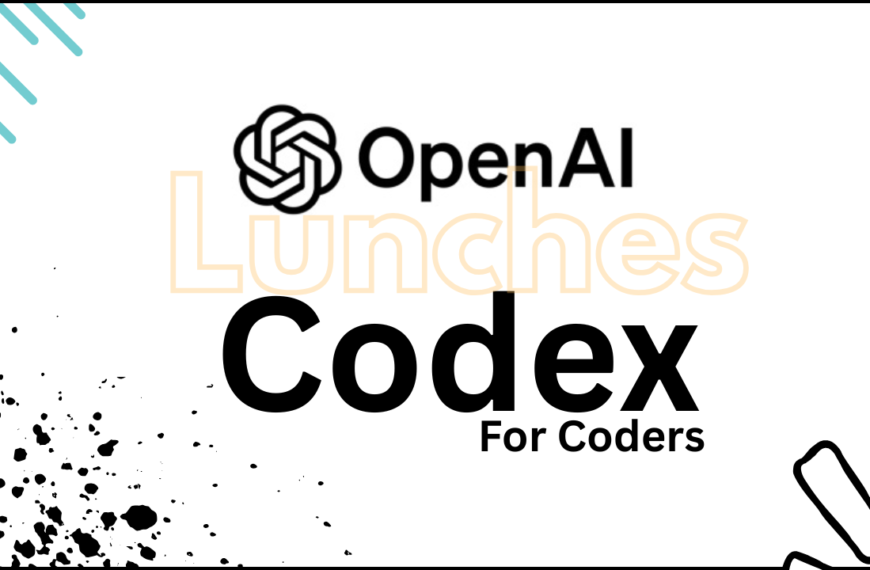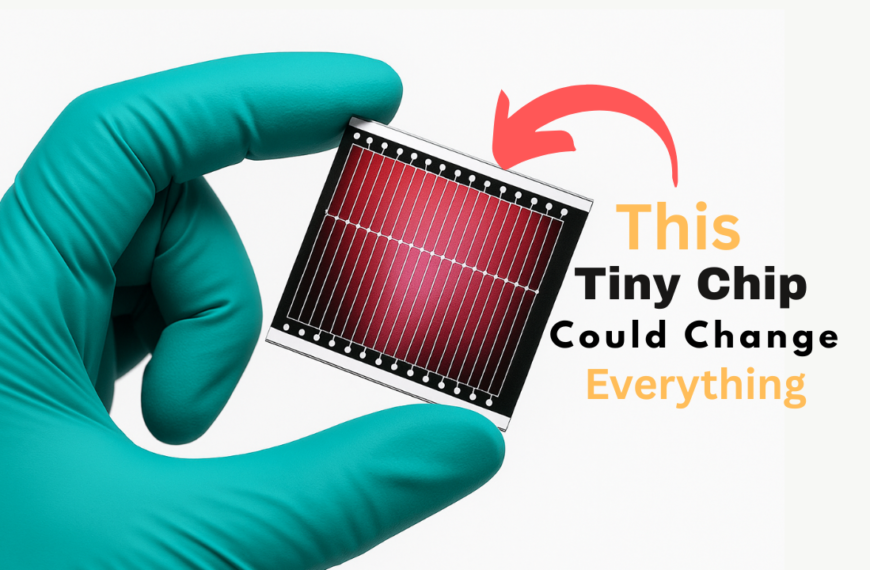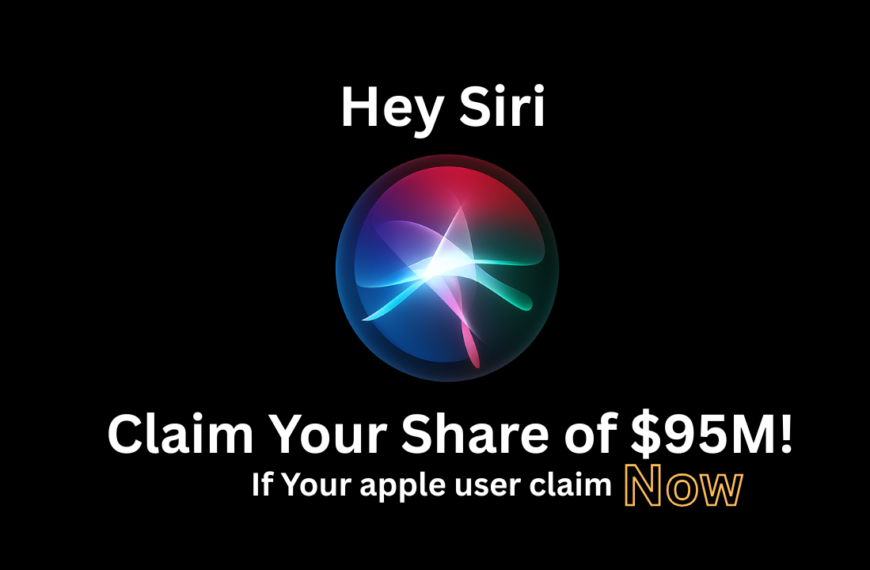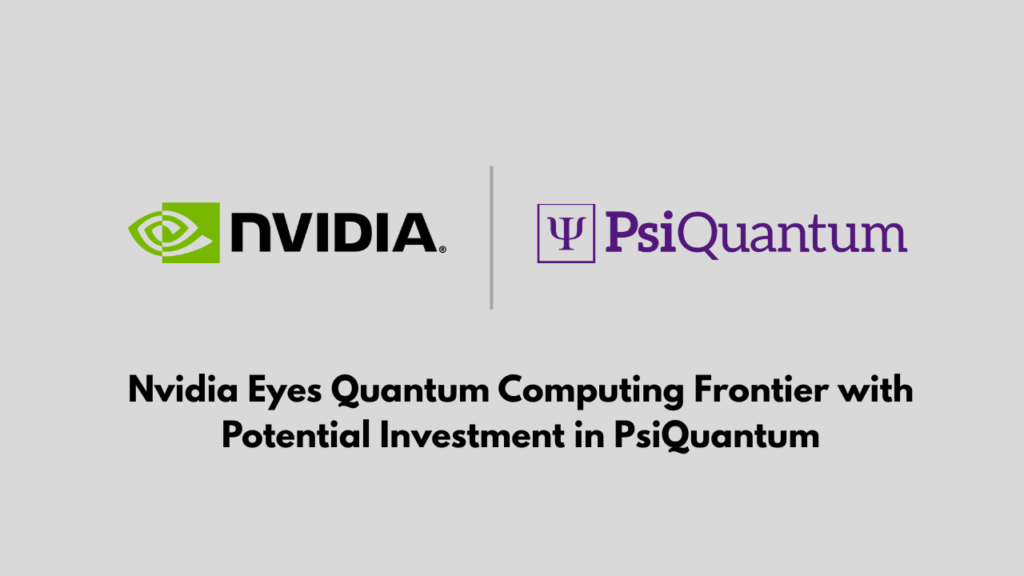
In a strategic move that could redefine the future of high-performance computing, Nvidia is reportedly in advanced talks to invest in PsiQuantum—a pioneering quantum computing startup focused on photonic quantum technology. The development, first reported by The Information, suggests a bold step toward the convergence of artificial intelligence (AI), GPUs, and quantum computing.
Nvidia’s Interest Marks a Quantum Leap
Nvidia’s rumored investment underscores the growing momentum behind quantum computing. If the deal materializes, it would provide PsiQuantum with substantial resources to accelerate its ambitious mission: building the world’s first fault-tolerant, photonic quantum computer.
With a pre-money valuation of $6 billion and a current funding round led by BlackRock aiming to raise $750 million, PsiQuantum is already one of the most promising startups in the quantum space. A strategic investment from Nvidia would not only validate PsiQuantum’s technology but also firmly plant Nvidia’s stake in the next era of computational power.
Why PsiQuantum? A Unique Photonic Approach
Founded in 2016, PsiQuantum stands out for its photonic quantum computing approach. Unlike other firms relying on superconducting circuits or trapped ions, PsiQuantum uses photons (light particles) as qubits. This method promises high scalability, lower error rates, and integration with existing semiconductor manufacturing processes.
Key Advantages of PsiQuantum:
- Scalable architecture leveraging standard CMOS manufacturing techniques.
- Strategic partnerships with global players like GlobalFoundries.
- Strong governmental backing from the U.S. and Australia.
- Plans for a major quantum data center in Chicago, indicating rapid industrial-scale ambitions.
Nvidia’s Growing Quantum Portfolio
Nvidia’s interest in quantum computing isn’t new. The company has already laid significant groundwork in the space:
1. NVIDIA Accelerated Quantum Research Center (NVAQC)
Located in Boston, NVAQC focuses on integrating quantum hardware with AI supercomputers. Collaborators include Harvard, MIT, Quantinuum, QuEra, and Quantum Machines.
2. CUDA-Q Platform
A unified hybrid computing platform that enables seamless interaction between QPUs (Quantum Processing Units), CPUs, GPUs, and quantum simulators.
3. DGX Quantum
In partnership with Quantum Machines, DGX Quantum delivers ultra-low-latency communication between quantum control systems and GPUs—key for next-gen research.
4. cuQuantum Libraries
A powerful suite of quantum circuit simulation tools used by frameworks like Qiskit and Cirq, making quantum experimentation more accessible.
5. cuPQC – Post-Quantum Cryptography
Accelerates secure post-quantum cryptographic algorithms, addressing future cybersecurity threats posed by quantum computing.
6. Quantum Cloud Platform
Nvidia is also developing a Quantum Cloud to democratize access to quantum computing resources across industries.
Why This Investment Makes Strategic Sense for Nvidia
🔹 Market Expansion & Diversification
Quantum computing is a rapidly growing multi-billion-dollar industry. By investing in PsiQuantum, Nvidia positions itself to lead in a space beyond AI and GPUs.
🔹 Leverage HPC Expertise
Nvidia’s deep roots in high-performance computing (HPC) align perfectly with the demands of scalable quantum computing.
🔹 Endorsement of Photonic Tech
Backing PsiQuantum’s photonic approach sends a strong signal to investors and researchers that light-based quantum computing is a viable, scalable future.
🔹 AI & Quantum Synergy
The integration of AI and quantum computing will unlock possibilities in drug discovery, material science, logistics optimization, and beyond—areas classical systems struggle with.
🔹 Future-Proofing Computational Needs
As AI models grow more complex, quantum computing offers a path to meet and exceed the growing demand for computational horsepower.
Conclusion: A Transformative Alliance in the Making
Though an official announcement is still pending, the implications of a potential Nvidia-PsiQuantum partnership are already stirring excitement in the tech community. The combination of Nvidia’s AI and HPC dominance with PsiQuantum’s photonic quantum technology could accelerate the timeline toward fault-tolerant quantum computers—bringing us closer to breakthroughs that will reshape industries and redefine computing.
Stay tuned as we follow this evolving story and explore how this strategic move could herald a new chapter in the AI-Quantum revolution.
